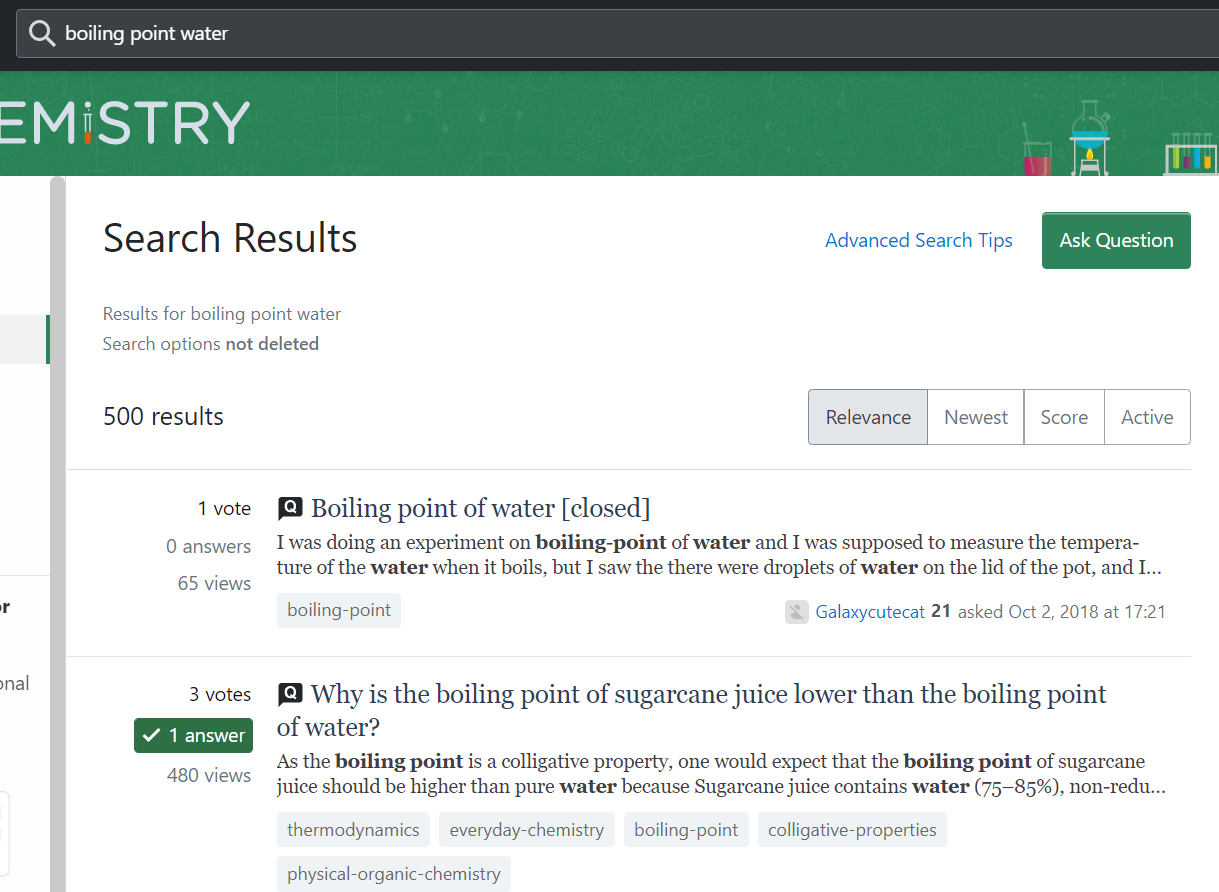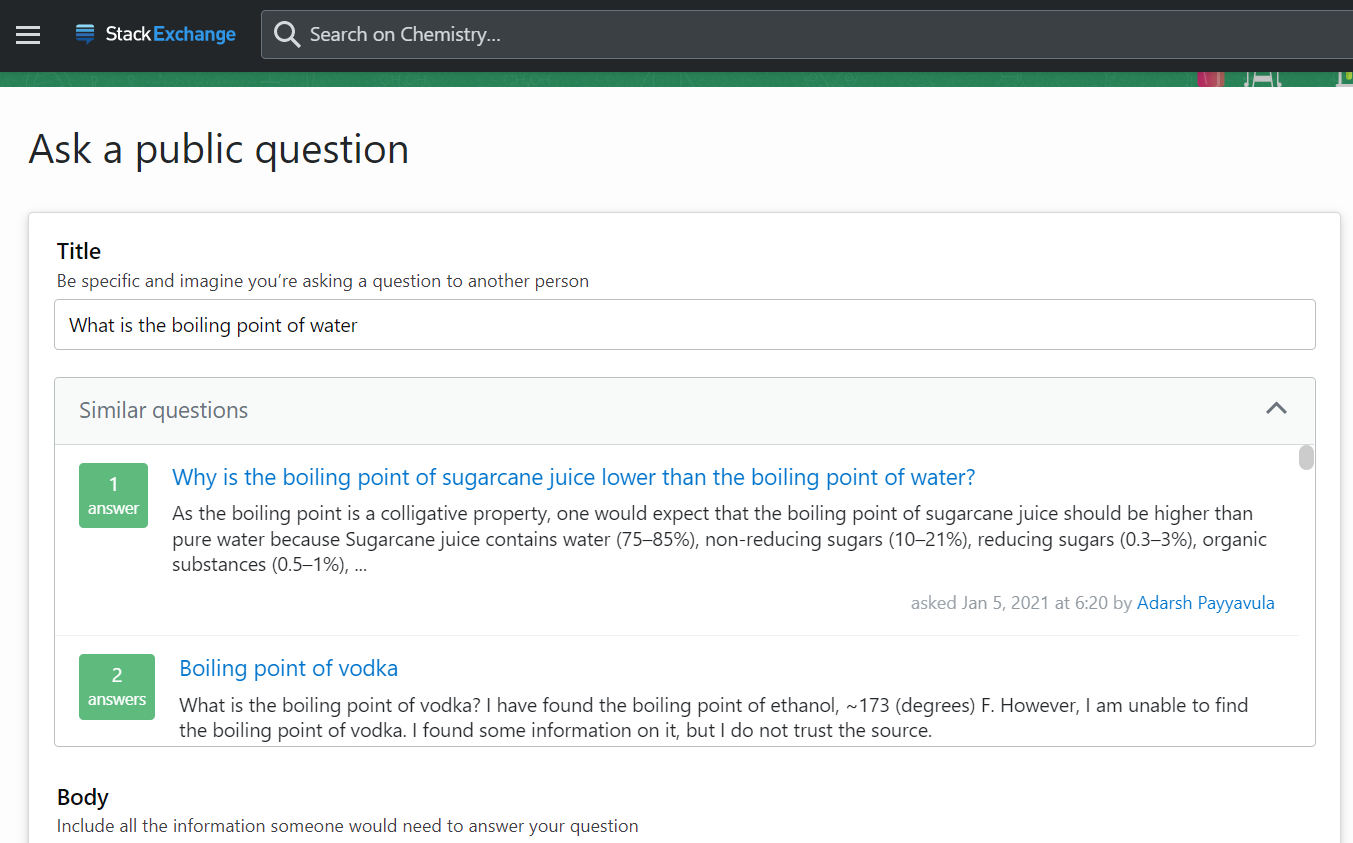Before you ask your question
Here, we are using a very basic question as the example (so basic that it would be faster to search for an answer directly on the internet).
You go to the StackExchange Chemistry site and enter your question (or some words from your question) into the search bar.

Depending on the details, you get slightly different answers, so try a couple of search terms. Here is the one for the complete question:

And here we just use the interesting words (without the common words "what", "the", "of"):

These two searches give you access to the keywords "water", "boiling-point" and others. You can use those in the search in brackets, e.g. "[water]", searching for those questions that have this keyword.
When you click on one of the questions (notice they are listed with the number of votes, the number of answers, and a check mark for those with an accepted answer), you will unlock more ways of finding similar questions:

On the right sidebar (on a big screen) or under the question (on a small screen), you will find related questions. Just click on one of those to see if it is more relevant, or has answers more relevant to you.






